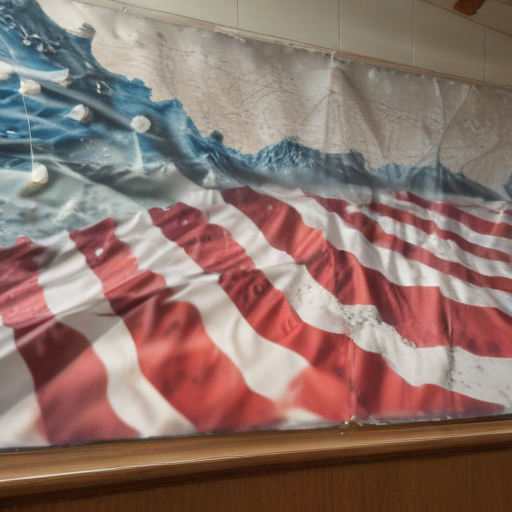A new proposal in Congress, HR 1161, has reignited discussions surrounding Donald Trump’s long-standing interest in acquiring Greenland. Introduced by Georgia Representative Earl Carter, the bill would give Trump the authority to begin negotiations for the purchase of the self-governed island, which is currently an autonomous territory within the Kingdom of Denmark. Notably, the proposed legislation suggests that should the acquisition succeed, Greenland would be renamed “Red, White and Blueland.”
The bill has been put forward to several Congressional committees, including the Committee on Foreign Affairs. Trump’s interest in Greenland dates back to his first term, although he has increased his rhetoric regarding the purchase as he resumes his presidency. He cites national security concerns as a primary reason for wanting to add the territory to the United States.
However, the sentiment among Greenland’s residents appears overwhelmingly against joining the U.S. An opinion poll indicates that 85% of the population is opposed to any form of integration with the United States. Both Greenland’s Prime Minister Múte Egsede and Denmark’s Prime Minister Mette Fredriksen have firmly rejected the idea of selling the island, emphasizing that it is an integral part of Denmark’s territory and not for sale.
Despite these clear objections, Trump continues to assert that the U.S. will eventually “have” Greenland, suggesting falsely that residents desire to join the U.S. The president’s previous comments also hinted at a willingness to use military force for such acquisitions, stating that both Greenland and the Panama Canal were vital for “economic security.”
Legally, while the president has the authority to negotiate treaties and territorial exchanges, any agreement must be ratified by two-thirds of the U.S. Senate. Moreover, Congress retains the power to determine whether a territory can become a state—a process that typically involves a referendum and the establishment of a state constitution.
Historically, the U.S. has acquired territory from Denmark, such as the Virgin Islands in 1917, which were purchased for $25 million. The U.S. Virgin Islands operate under a territorial system similar to that of Puerto Rico and American Samoa, featuring a locally elected governor and a non-voting Congressional delegate.
This situation is indicative of the complex international relationships and negotiations that shape territories and governance. As debates continue, the international community watches closely, and public opinion within Greenland will likely play a significant role in any future developments regarding its status.
Overall, while the proposal of acquiring Greenland has sparked renewed debate, it also highlights the importance of local sentiment and international law in the discourse surrounding territorial negotiations.
